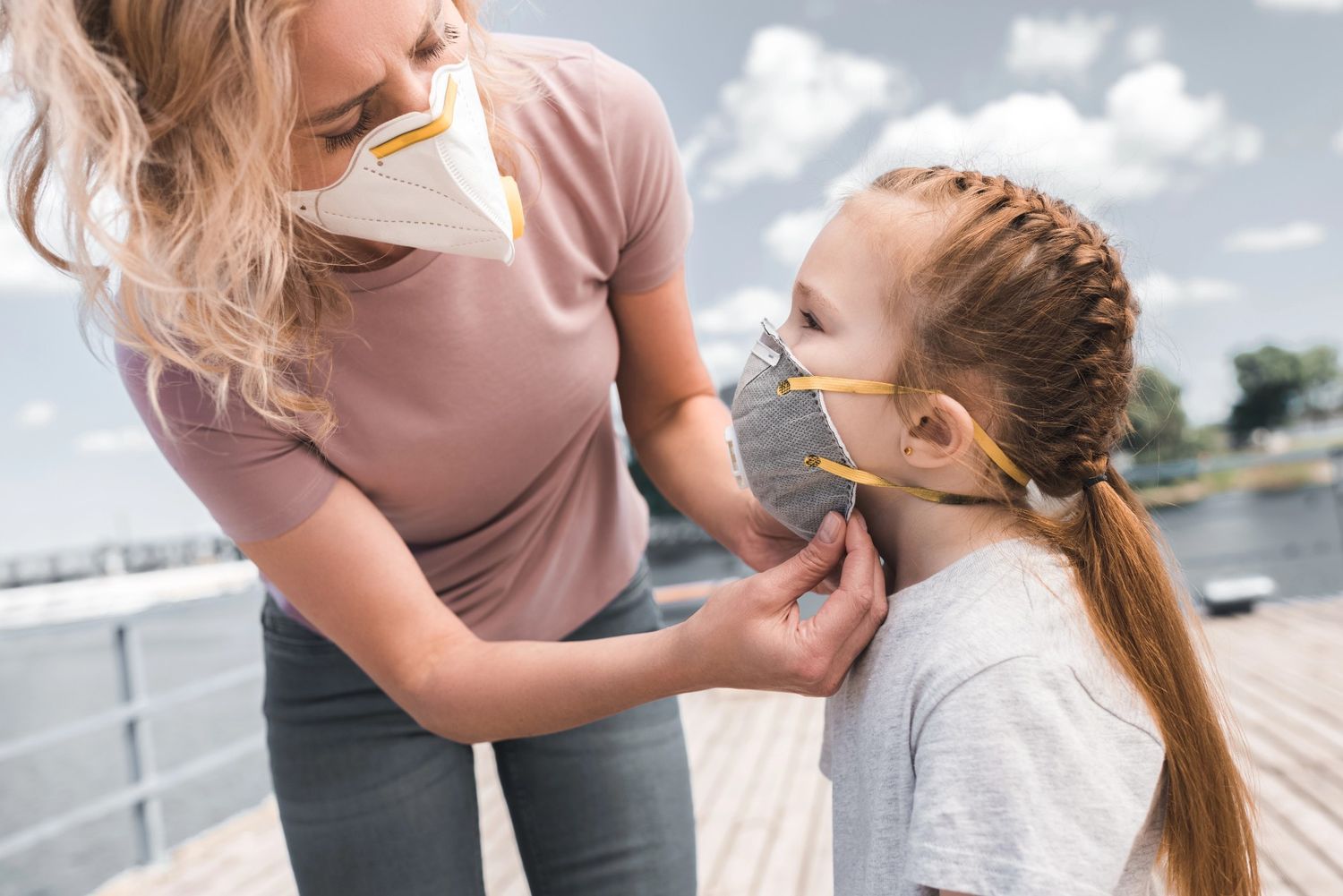Bronchitis Relief Starts at NextGen Walk-in Clinic & Urgent Care


Pulmonary complaints are among the most common reasons people seek medical attention. These issues, which affect the lungs and respiratory system, can range from mild irritation to serious conditions that impact breathing and overall health. One of the most frequently reported respiratory problems is bronchitis, an inflammation of the bronchial tubes that carry air to and from the lungs.
Conditions like bronchitis can significantly interfere with daily life—causing symptoms like persistent coughing, chest discomfort, fatigue, and shortness of breath. These symptoms not only make it harder to breathe comfortably but also reduce energy levels, disrupt sleep, and decrease overall productivity at work or school.
In this blog, we’ll take a closer look at bronchitis, its symptoms, causes, and treatment options. We’ll also highlight how NextGen Primary Care Clinica Hispana Walk-in Clinic & Urgent Care can provide fast, effective care to help you recover quickly and breathe easier again—no appointment needed.
Symptoms of
Bronchitis
Bronchitis, whether acute or chronic, presents with a variety of symptoms that can range from mild to severe, affecting your daily life. Understanding the signs of bronchitis is crucial for early detection and treatment, ensuring that you get the care you need as soon as possible. Here’s a closer look at the key symptoms of bronchitis, which can significantly affect your respiratory health and overall well-being.
Why Early Intervention Matters
While it might seem like waiting a few more days will be fine, early intervention can make all the difference. If you are experiencing any of the symptoms listed above—particularly persistent coughing, difficulty breathing, chest pain, or a high fever—it’s essential to consult with a healthcare provider as soon as possible.
Waiting to see a doctor until symptoms have worsened can result in prolonged recovery times, complications, and potentially more severe health issues. By addressing symptoms early, healthcare providers can help manage and treat the illness more effectively, preventing long-term damage and accelerating your recovery.
At NextGen Walk-in Clinic & Urgent Care, we understand the urgency of getting the care you need when you’re experiencing troubling symptoms. Our team of healthcare professionals is ready to provide quick, reliable treatment to help you recover and return to your daily routine. If you’re unsure whether it’s time to see a doctor, don’t hesitate to visit us for a consultation. We’re here to help you breathe easier and feel better, fast.

What is Bronchitis?
Bronchitis is a respiratory condition that occurs when the bronchial tubes, which are the airways that carry air to and from the lungs, become inflamed. This inflammation disrupts normal airflow, making it more difficult to breathe and leading to symptoms such as persistent coughing, wheezing, and mucus production. The swelling and mucus buildup in the airways are what cause the discomfort, making it harder for air to pass through.
Bronchitis can affect anyone, but it is particularly common in individuals who are exposed to irritants like tobacco smoke or who have weakened immune systems. In some cases, bronchitis can lead to more serious conditions, such as pneumonia or chronic obstructive pulmonary disease (COPD), if left untreated or if it recurs frequently.
Understanding the type, cause, and potential risk factors of bronchitis is critical in determining the appropriate treatment. Early diagnosis and intervention can help alleviate symptoms, prevent further complications, and support faster recovery.
Prevention Tips for Bronchitis: Protect Your Lungs and Stay Healthy
Bronchitis is an unpleasant condition that affects your respiratory system, making it hard to breathe and function as usual. While it’s important to seek medical care when you’re feeling unwell, prevention is always better than cure. By following a few simple yet effective steps, you can reduce your chances of developing bronchitis and other respiratory issues. Here are some essential prevention tips to keep your lungs healthy:

When to See a Doctor:
Recognizing Serious Symptoms
While many respiratory illnesses, including bronchitis, begin with mild symptoms and can improve on their own, there are certain signs that should not be ignored. If you’re experiencing symptoms that persist or worsen, it’s important to seek medical attention promptly. Knowing when to visit a healthcare provider can help prevent complications and ensure that you receive the most effective treatment for your condition. In this section, we’ll go over key symptoms that indicate it’s time to see a doctor.

How NextGen Walk-in Clinic & Urgent Care Can Help
If you’re struggling with bronchitis or any respiratory illness, NextGen Walk-in Clinic & Urgent Care is here to provide quick, effective treatment. We offer a range of services designed to help you get better fast and manage your symptoms with ease.
Treatment Options for Bronchitis: Finding Relief Quickly
Bronchitis, whether acute or chronic, can make breathing difficult and disrupt daily life. However, with the right treatment, you can start feeling better faster. Below are some of the most common and effective treatment options for managing bronchitis, helping you return to your routine as quickly as possible.
Patient Testimonials
At NextGen Primary Care, our patients are at the heart of everything we do. We’re deeply grateful for the trust they’ve placed in us, and we’re honored to hear about the positive experiences they’ve had with our compassionate care, quick service, and dedicated team. Here’s what a few of our patients have shared about their time with us:
Contact Us
At NextGen Primary Care, we understand the importance of accessible healthcare, which is why we offer convenient hours and flexible scheduling. Our clinic is here to serve you, whether you need urgent care, primary care, or specialized treatment.
Address
6306 Gulfton St #203,
Houston, TX 77081
Consultation Schedule
Mon – Wed: 9:00AM – 7:00PM
Thu – Fri: 9:00AM – 6:30PM
Sat: 9:00AM – 4:30PM
Get in Touch
Phone: 281-888-7289
Email: info@nextgenpcp.com
Follow Us
The Importance of
Early Intervention
Although preventing bronchitis is the ideal solution, sometimes it can’t be avoided. When symptoms arise, the most important step is to seek early intervention. Early diagnosis and treatment are key to minimizing the severity of bronchitis and ensuring
that you recover as quickly as possible. NextGen Walk-in Clinic & Urgent Care is here to help you at every step of the way.
We provide fast, expert care for bronchitis and other respiratory conditions, ensuring you get the right treatment right
when you need it.
Encouragement to Visit NextGen for Fast, Expert Care
If you’re experiencing symptoms of bronchitis, don’t wait! NextGen Walk-in Clinic & Urgent Care offers immediate care without the hassle of appointments. We have experienced healthcare providers who can assess your condition, offer relief, and get you back to feeling better in no time.
Reassurance: Bronchitis is Treatable, and You Don’t Have to Wait to Feel Better
It’s essential to know that bronchitis is treatable, and with the right care, you can recover quickly. Don’t let coughing, chest discomfort, or breathing issues keep you from living your best life. Visit NextGen Walk-in Clinic & Urgent Care for fast, reliable treatment. We’re here to help you breathe easier, so you can get back to your normal routine without unnecessary delay.




















